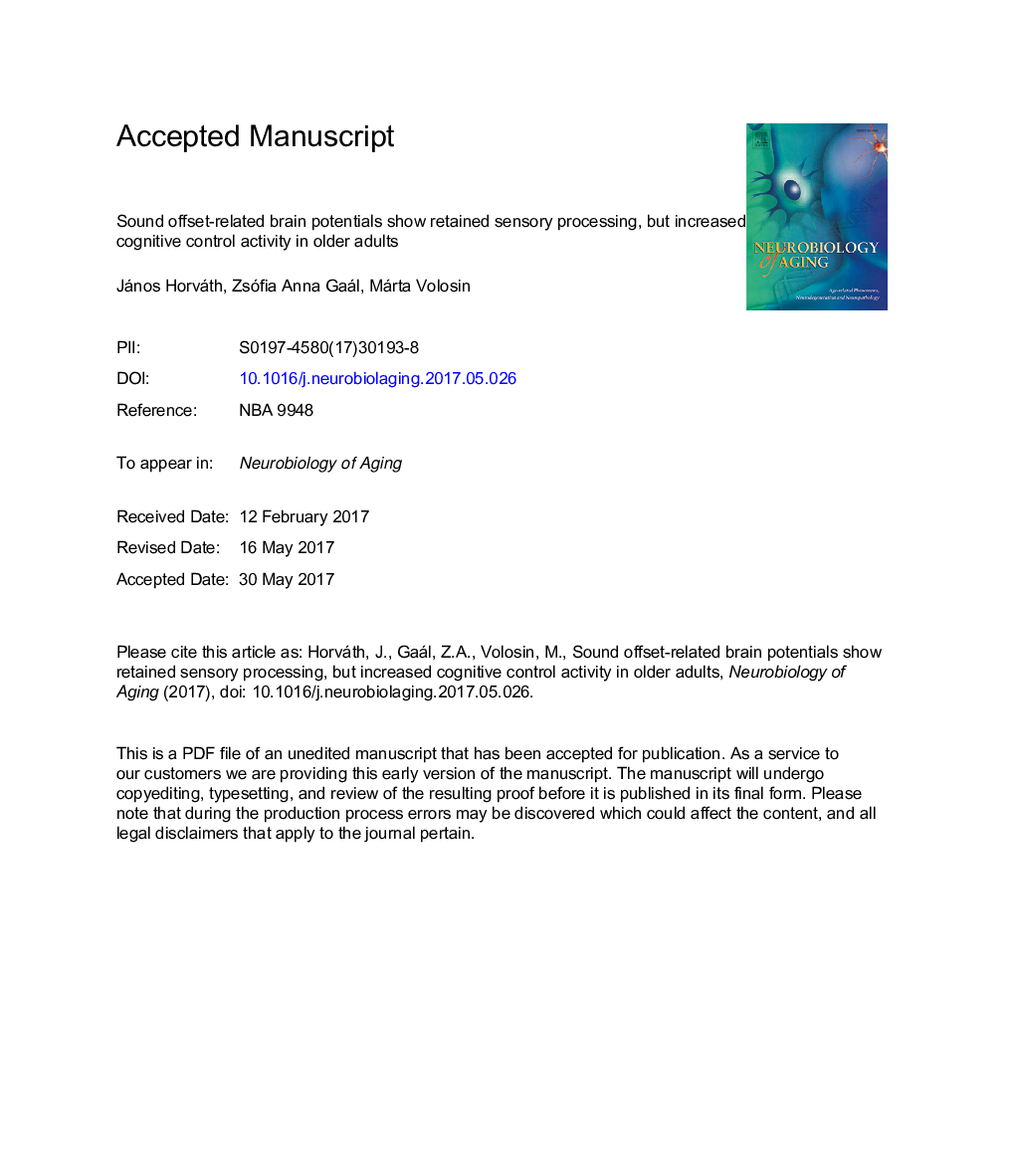| Article ID | Journal | Published Year | Pages | File Type |
|---|---|---|---|---|
| 4932665 | Neurobiology of Aging | 2017 | 51 Pages |
Abstract
It has been hypothesized that age-related hearing loss is caused not only by peripheral but also central changes in the auditory system. Many studies used event-related potentials (ERPs) elicited by sound onsets to characterize the age-related differences in central auditory processing. Age-related ERP enhancements in such studies have often been interpreted in terms of elevated sensitivity to auditory stimulation. Such ERPs, however, comprise various components reflecting different aspects of auditory and task-related processing. The composition of the waveforms may considerably differ for ERPs elicited by other auditory events. In the present study, ERPs elicited by tone offsets were used to characterize processing differences between younger and older adults in a short-go, tone-duration discrimination paradigm. Whereas the onset-related auditory ERP was enhanced in the older adult group, no age-related differences were found in the offset-related auditory ERPs observable at temporal electrodes. In older adults, however, offset-related processing was dominated by an N2 that could reflect enhanced cognitive control activities. Because N2 was present regardless discrimination difficulty, younger adults may have framed the task as offset detection, whereas older adults represented the task as “genuine” discrimination.
Related Topics
Life Sciences
Biochemistry, Genetics and Molecular Biology
Ageing
Authors
János Horváth, Zsófia Anna Gaál, Márta Volosin,
